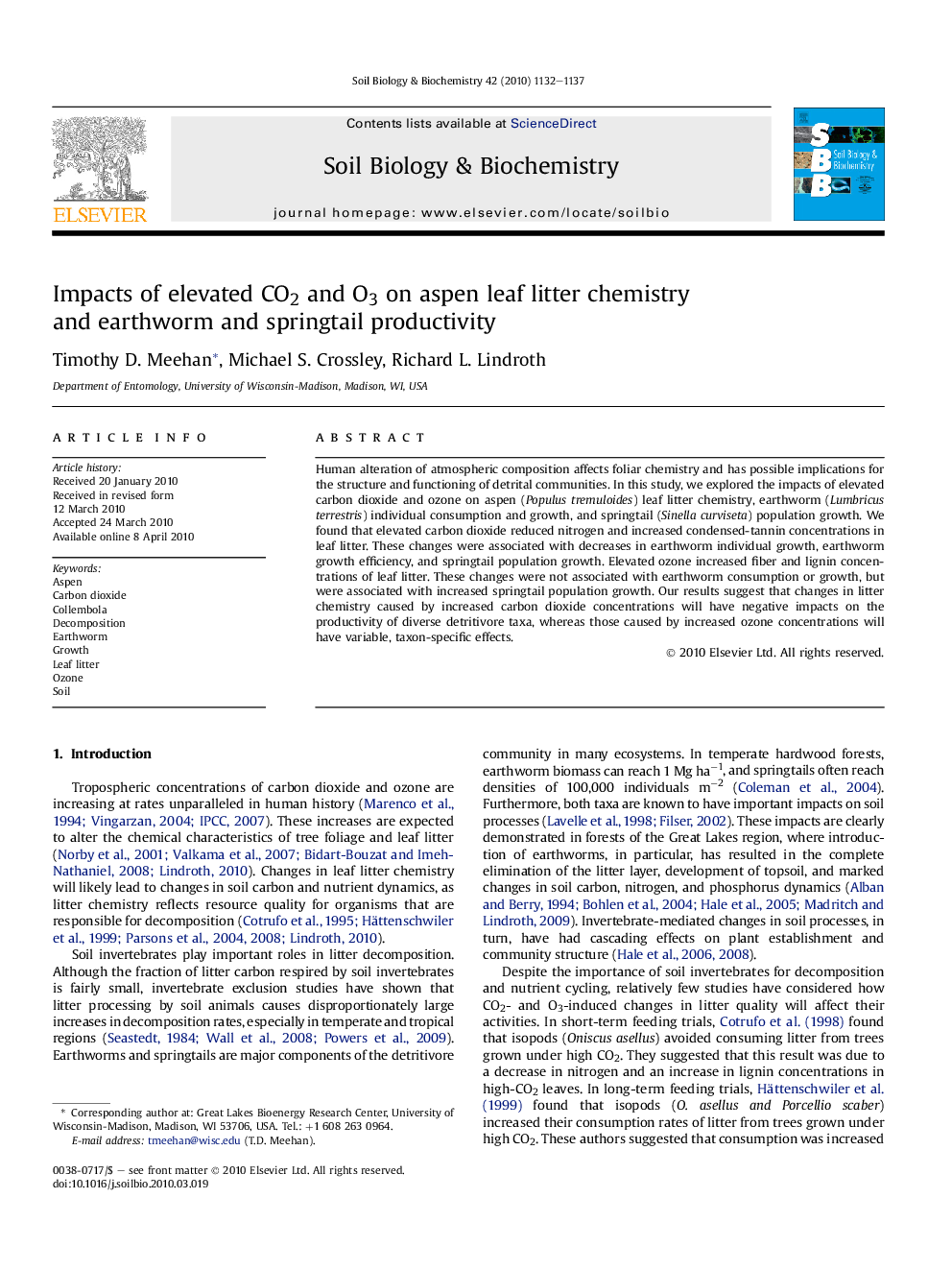| Article ID | Journal | Published Year | Pages | File Type |
|---|---|---|---|---|
| 2026273 | Soil Biology and Biochemistry | 2010 | 6 Pages |
Human alteration of atmospheric composition affects foliar chemistry and has possible implications for the structure and functioning of detrital communities. In this study, we explored the impacts of elevated carbon dioxide and ozone on aspen (Populus tremuloides) leaf litter chemistry, earthworm (Lumbricus terrestris) individual consumption and growth, and springtail (Sinella curviseta) population growth. We found that elevated carbon dioxide reduced nitrogen and increased condensed-tannin concentrations in leaf litter. These changes were associated with decreases in earthworm individual growth, earthworm growth efficiency, and springtail population growth. Elevated ozone increased fiber and lignin concentrations of leaf litter. These changes were not associated with earthworm consumption or growth, but were associated with increased springtail population growth. Our results suggest that changes in litter chemistry caused by increased carbon dioxide concentrations will have negative impacts on the productivity of diverse detritivore taxa, whereas those caused by increased ozone concentrations will have variable, taxon-specific effects.
